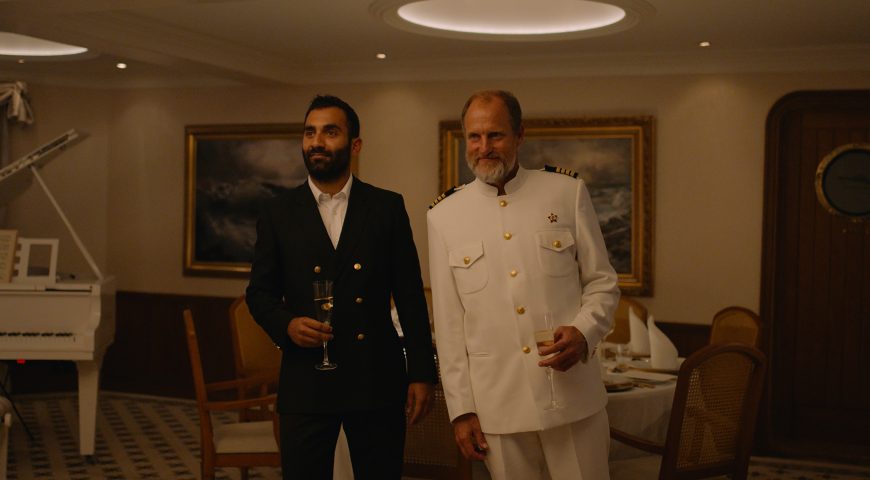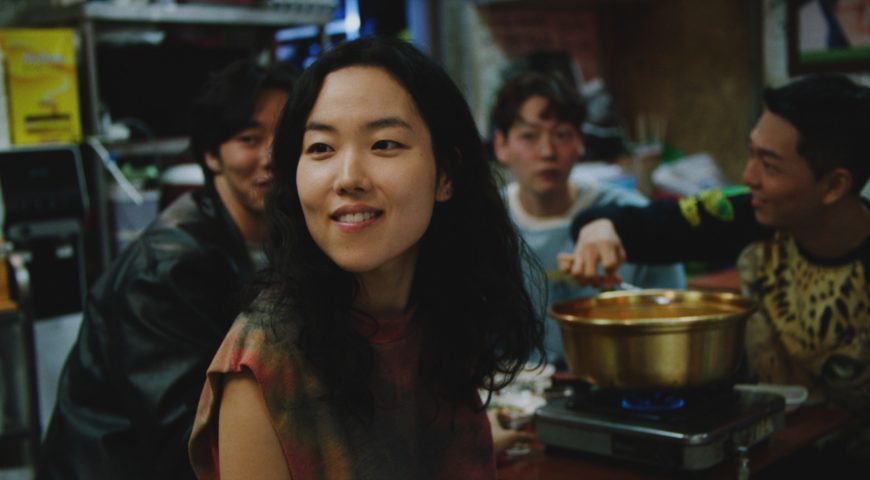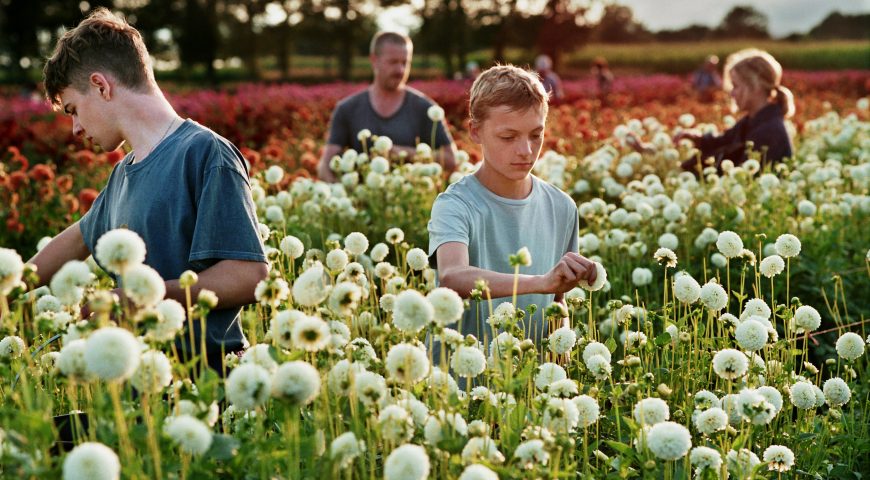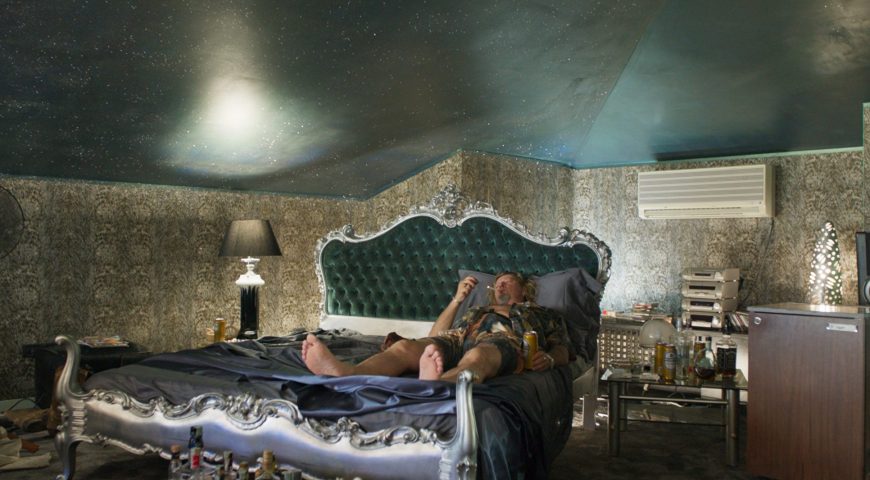Cannes prize winners, news from Venice, works of film masters from the Berlinale. This is the film program "The Bear, the Lion and the Twig" on October 4-9. will be shown in seven Lithuanian cities. At the same time, films will be shown not only in Vilnius, but also in Kaunas, Klaipėda, Šiauliai, Panevėžys, Marijampolė and Alytus cinemas.
A concentrate of the world's major film festivals - eleven films - will be presented in a week-long program. Audiences will see films from beloved directors such as François Ozon, Ruben Östlund, cinephile favorites and award-winning films.
"In order to show the most relevant films of this year's film season, reflecting the current affairs of contemporary cinema, we are organizing a film program for the second year. Most of the works in the program will be available before their premieres in the countries where the films were made", - its creator Giedrė Krikščiūnaitė, who has been showing festival films in Lithuania for more than 10 years, tells about the film program.

The name "Bear, Lion and Twig" refers with a smile to the prizes of the three main festivals - Berlin, Venice and Cannes.
"Major film festivals select about two hundred from the thousands of films submitted to them. From those few hundreds we select units, it can be said that our program is a double selection. In this way, a program of high artistic quality, modern cinema language and strong impact is formed. A film must evoke feelings, make one fall in love", says G. Krikščiūnaitė about the film selection criteria.
Cannes prize winners
At the beginning of October, the four winners of the Cannes Film Festival will be presented - Ruben Östlund's satire Triangle of Sorrow, which won the main prize Palme d'Or, Luc Dhonto's Grand Prize winner Arti, Tarik Saleh's Best Screenplay winner The Cairo Conspiracy and Ali Abbasi's The Holy Spider. , which won Zara Amir-Ebrahimi the Best Actress award.
Reuben Östlund won the Cannes Golden Branch for the second time this year, the first in 2017. received for the film "The Square". In a new work, the director turns what is Instagrammable into hellish. The super rich, a beautiful model and her diamond boyfriend gather for a glamorous cruise. When a luxury yacht sinks and part of this company survives on an uninhabited island, roles in the social hierarchy are turned upside down.
A prominent trend this year is that directors living in the West are delving into their roots and creating films about countries beyond the borders of Europe. The political detective "Cairo Conspiracy" depicts the struggle of a young intelligent man against the highest levels of government and religion in Egypt, while the crime thriller "Holy Spider" tells the story of a killer of prostitutes on the streets of the spiritual capital of Iran. The directors of both films live and work in Scandinavia. France-based Davy Chou looks further afield. His film "Return to Seoul" takes him to South Korea and tells the story of Freddie, twenty-five, who arrived there and was adopted in France as soon as she was born.

Director Maryam Touzani, known to Lithuanian audiences for her previous work "Adomas", tells a cozy story of a family in Morocco. Delving into issues of honesty, loyalty and intimate relationships between people, The Blue Kaftan won the Fipresci Critics' Prize in the Special Look program at Cannes.
Portuguese João Pedro Rodrigues' film "Zaltvíkslė" is a real provocation for brave and free viewers. This musical erotic comedy with elements of science fiction and magic makes friendly fun of today's escalating topics: class and racial antagonism, climate change, LGBT issues. Just as the žaltívlja - a ghostly swamp fire - misleads travelers, so this film can irritate the overly serious.
The new film "Arti" by the young Belgian director Luc Dhont, who impressed the fans of the festival cinema a few years ago, was chosen as the opening film of the film program. The film, full of a special atmosphere of kindness and light, tells about an extremely complex and sensitive time in a person's life - the transition from childhood to the world of adults.

Works of film masters
French director François Ozon, who never ceases to amaze the audience, pays tribute to German cinema provocateur Rainer Werner Fassbinder with his new film. At the Berlin Film Festival, he presented a new – rich, spicy and extremely stylish – version of the classic film "The Bitter Tears of Petra von Kant". The theatrical melodrama painted in bright colors invites you to immerse yourself in the spectacle of lust and beauty. Viewers who have not seen the original film will be treated to a dizzying geometry of love and a retro pulsating aesthetic, while cinephiles familiar with RW Fassbinder's work will see the deconstructed masterpiece of the German cinema master and feel as if they are watching two different films flirting with each other at the same time.
The films of the Canadian Denis Côté are also well known to the visitors of Lithuanian film festivals. He tackles the sensitive subject of sex addiction in the 16mm film "That's That Summer" which premiered at the Berlinale. Three young women close themselves in nature for several weeks, where they share their experiences with a therapist. The director explores the limits of intimacy, sexual identity and different forms of closeness without moralizing.
Austrian film master Ulrich Seidl is known for his ironic documentary style. The movie program "Bear, Lion and Twig" will show the film "Riminis", presented at the Berlinale, which tells the story of an elderly pop singer who entertains German tourists who came to Italy during the off-season.

Just after the premiere in Venice
September 10 presented in the program of the finished Venice Film Festival, Philippine director Lav Diaz's "When the Waves End" will be able to arrive in time for "The Bear, the Lion and the Twig". L. Diaz is a film master who has won many prestigious awards and has a unique trait: to talk about the complex history of his country with extremely cinematic shots. In this case, a moral dilemma is unraveled - is it possible to continue living after serving the bloody regime? Shot on this 16mm film film noir style film tells a grotesquely dark (and sometimes unexpectedly funny) detective story of friendship and revenge between two policemen - a teacher and a student.
The film program "The Bear, the Lion and the Twig" will be held on October 4-9. In Vilnius, Kaunas, Klaipėda, Šiauliai, Panevėžys, Alytus and Marijampole.
You will find the festival sessions in Romuva here.

